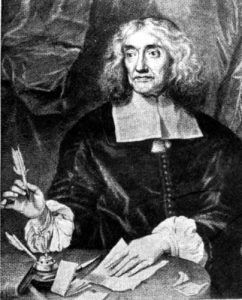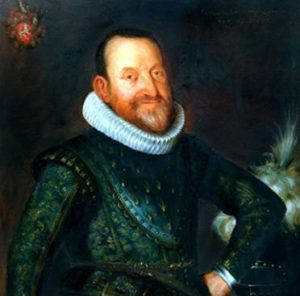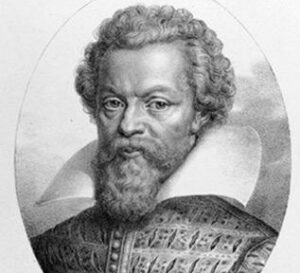Conrart the writer
Valentin Conrart was born in Paris. His family, who belonged to the Reformed Church, came from Valenciennes, Lilles, which, in the early 17th century, was in the Spanish part of the Low Countries. His family had taken refuge in France to escape from the terrible Duc d’Albe.
In 1627, he was appointed secretary and official to the king, specialising in the publication of books. The king’s secretaries had to set out the letters of privilege for certain publishers, which allowed a book to be published, and the publisher had sole rights.
As he dealt with publishing, he was a key figure, acting as a mediator between the authors and the king and also between the authors and the public.
From 1629 onwards, writers met regularly, once a week, in his home ; they were known as “Conrart’s circle”.
He was the first secretary to the "Académie française", from 1635 to 1675
Richelieu suggested changing the nature of these informal meetings – he wanted to makethem a literary “company”, under royal authority ; they were in fact the beginnings of the “Académie française”.
In 1635, Conrart was appointed secretary to this “company” : he set out the rules, which were endorsed by Richelieu. Then King Louis XIII sanctioned the foundation of the “Académie française”, which took the form of a scholarly society.
A Protestant "man of honour"
Vincent Conrart had links with the Protestant circles in Paris, notably with the pastors of the Charenton church, whose works he published.
Even though he held deep religious convictions, he also had a moderate attitude to others and sometimes acted as an intermediary between Catholics and Protestants, encouraging both sides to be open to dialogue.
He also strongly supported the publication in Holland of books which the king had not allowed to be published in France, particularly the Memoirs of Philippe Duplessis-Mornay.
Although the Catholics put much pressure on him, he never recanted.
Together with others, he revised and modernised the Huguenot Psalter, originally written by Clément Marot and Théodore de Bèze. It was finally published by his successors (Charenton, 1677).
Although he was a man of letters, he was never an author
Very little written by Conrart himself was published in his lifetime, apart from three poems, in 1647. It seems that this was a deliberate personal decision, in that he considered it was not moral to have his own name among those of the authors he published. Besides, his renown does not come from anything he wrote and published himself.
In a satirical poem, the poet Linière expressed his astonishment :
“Conrart, how did you manage
To acquire so much renown,
All you ever published
Was your own name and nothing more”.
There are a considerable number of hand-written texts by Conrart, kept in the Arsenal Library. Among them is an account of the Fronde civil war, which was edited in the XIXth century, under the title of Memoirs of Valentin Conrart, and first published in Paris in 1826.






